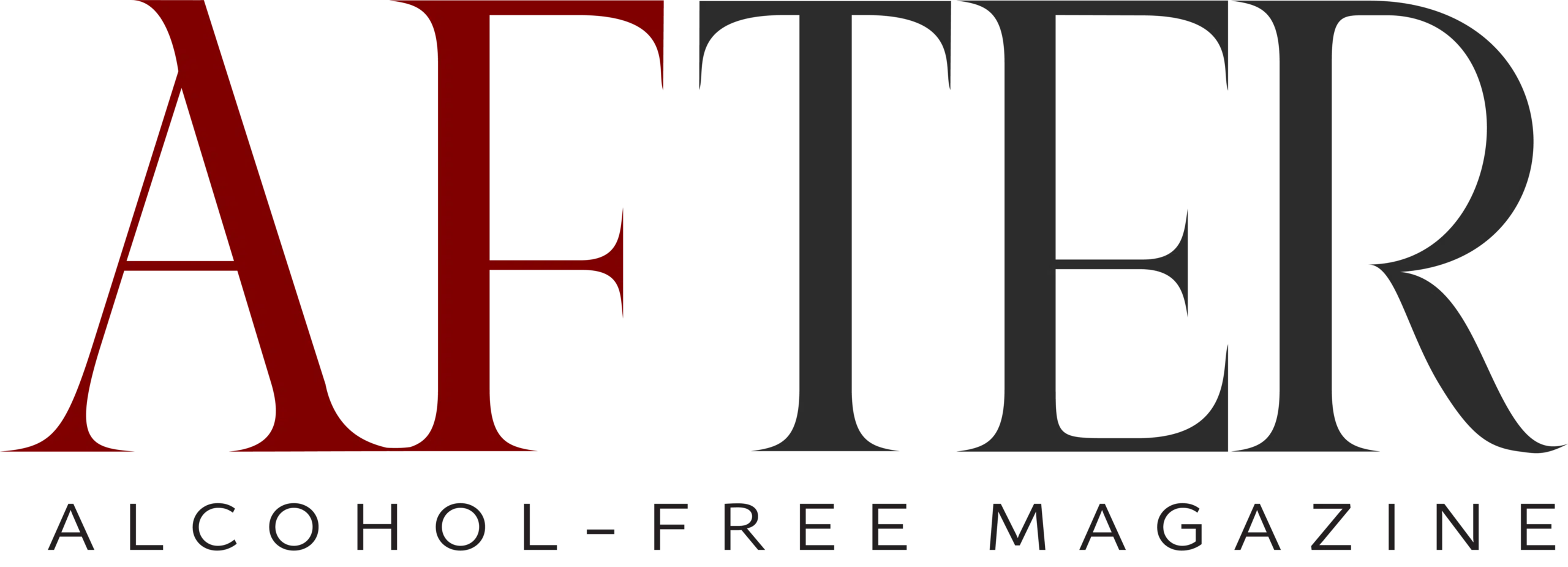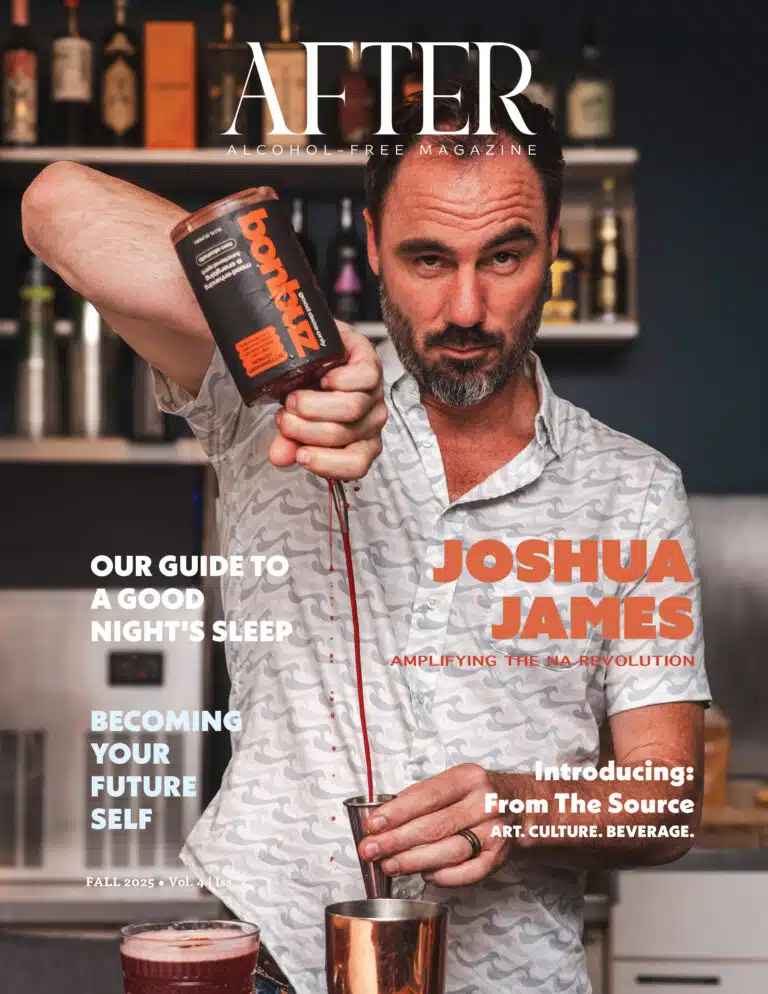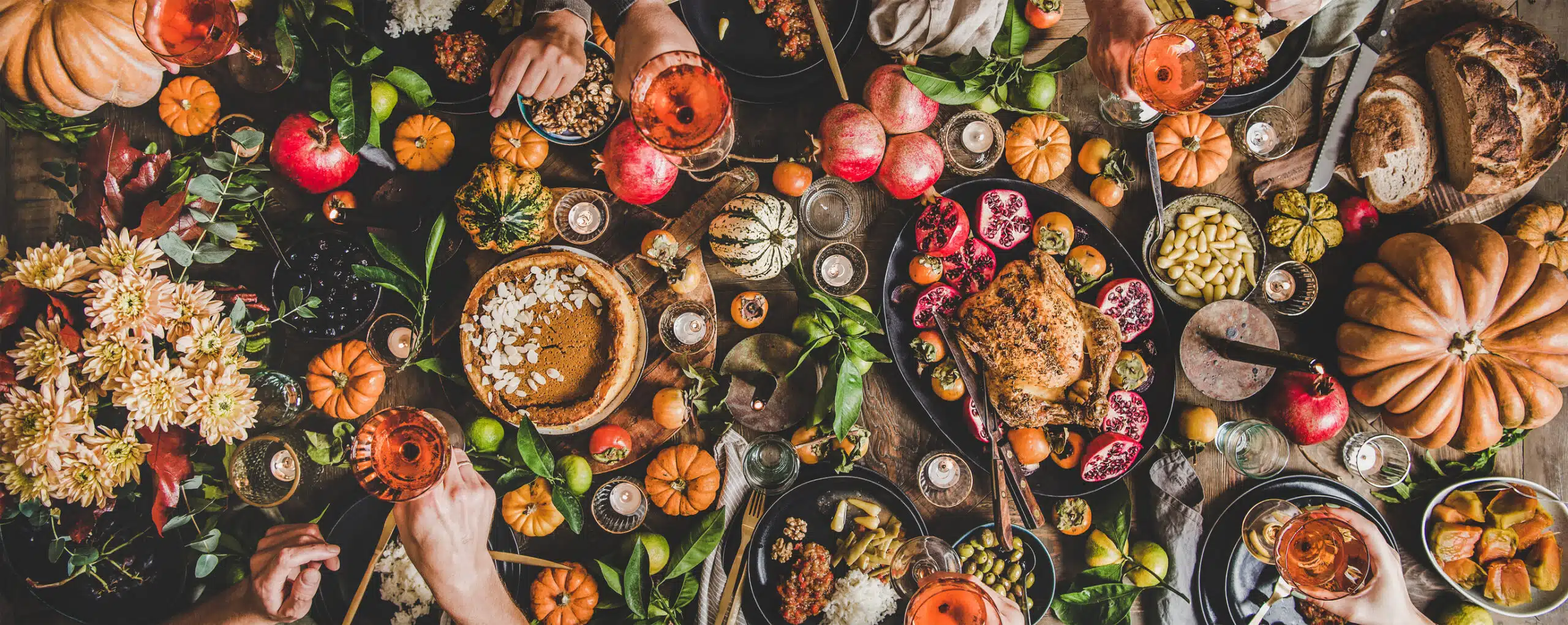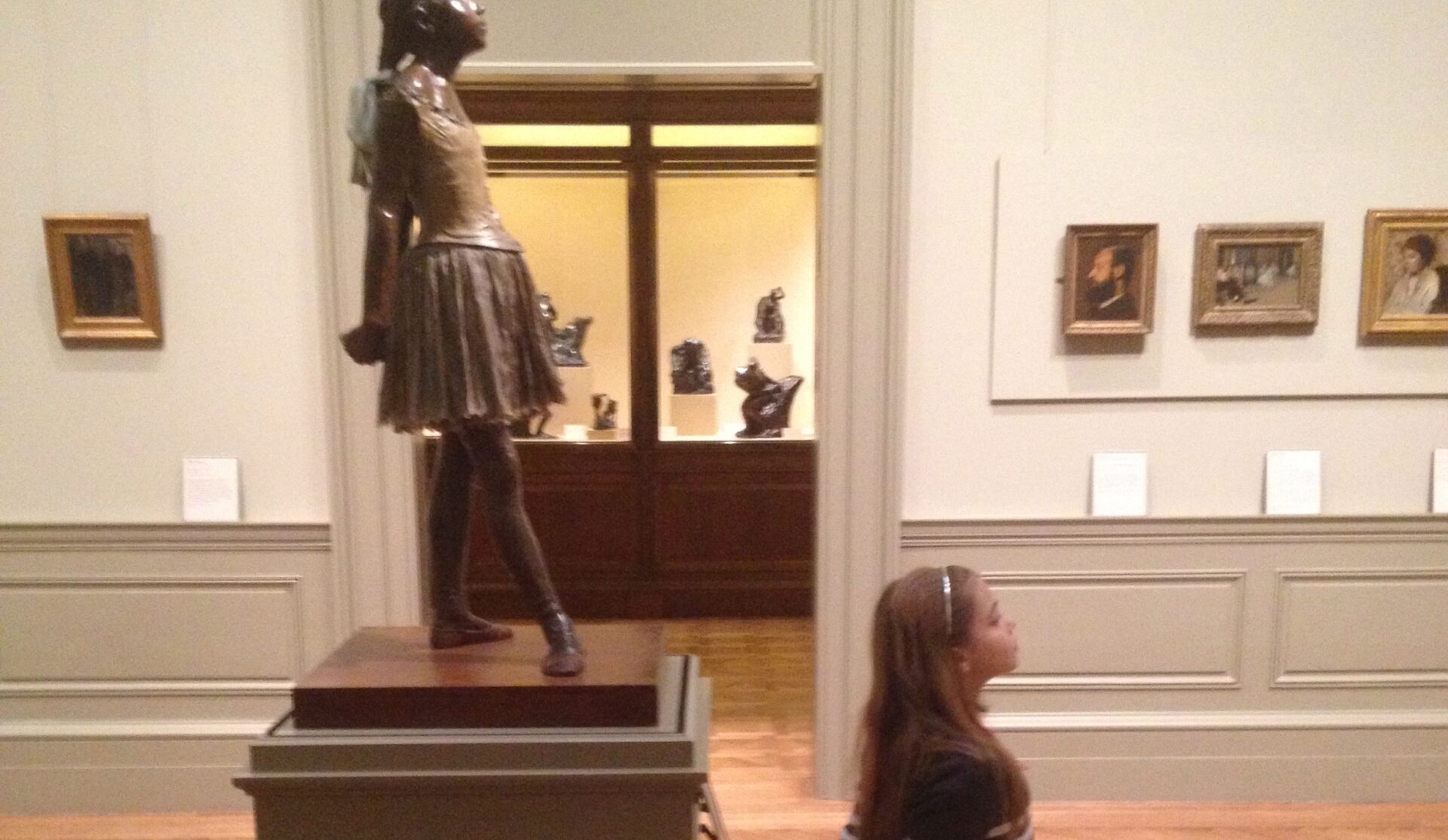Photo credits:
Cassandria Alvarado (Photo of Chris)
Sam Cohen (Photo of Nicole)
The following interview has been edited for space and clarity.
CHRIS MARSHALL casts a watchful eye over a roomful of revelers—one of the many alcohol-free parties he has been hosting on the Sans Bar Tour taking place in cities around the U.S. this year. He’s here to greet his guests, some of whom drive hours to attend, and is simultaneously focused on his larger mission. He stands ready to jump into action as needed—whether to wipe up a spill, direct someone where they need to go, or make an introduction, Chris wants you to leave the evening feeling like you’re a PART of something. And it works. His parties have become immensely popular—as has his bar, Sans Bar, in Austin, TX. But more importantly, people leave these events feeling uplifted and excited about being part of the alcohol-free crowd. There is a discernable joy in the air as people sip mocktails and talk about how they came to be in this space.
AFTER editor-in-chief, Nicole Pietrandrea Hough, caught up with Chris after a recent Sans Bar party in New York to talk more about the Sans Bar story, creating connection, what’s next in the alcohol-free movement, and Chris’s plans for the future.
Nicole Pietrandrea Hough for AFTER:
You’re meeting people all over the country in the alcohol-free community [at the Sans Bar Tour parties]. What’s the vibe like out there?
Chris Marshall:
I think people are really excited about connecting to [an alcohol-free] community. They might have seen nonalcoholic drinks on Instagram or other social media, and they’re excited to experience it for themselves. It’s really exciting to have some of our beverage partners come into the event and be part of it. But more importantly, it’s the sober people, some of whom travel two hours or more to these gatherings for the opportunity to become part of this larger movement and form local connections. Finding those connections with people who are like you, who are not drinking for whatever reason.
N: Take me back to your starting point when you decided to start Sans Bar. What did that look like for you?
C: It was a decision that I didn’t want to make. I had the idea for an alcohol-free bar for a long time. I wanted someplace to go personally and I believed that it was something that people needed. But I also recognized it was going to be a lot of work. I was so afraid of the work. It was more than I could do with a full-time job and it just seemed like this hill to climb that was too much.
I was working [as a licensed substance use counselor] at the time and had a client who was struggling. The last time we talked was on a Friday night, the client told me that they had been struggling to choose between being social and being alcohol-free. They were mid-30s, professional, really brilliant, and it made me so sad that this was [the choice someone had to make]. That client eventually succumbed to their substance use, and that was the breaking point for me. That made the decision [to start an alcohol-free bar] a lot easier.
I knew there were a lot of things stacked against the success of Sans Bar, but I didn’t care. The only thing on my mind at that time was to create a place where people could find their starting point if they were deciding [between being social or being alcohol-free]. That’s why I started Sans Bar.
If you really want to change and shift the culture—not just use [alcohol-free] as a marketing tool—then consider embracing the word “sober”...[and make it clear that] sober people are welcome.
N: That’s a terrific thing and you’re basically the one that started this whole movement.
C: Well…yes and no. I believe there is nothing new…everything is just recycled and remixed.
We forget in the Westernized world that there are entire civilizations that have never consumed alcohol. They discovered alcohol and said, “You know what, it’s poison,” and just moved on. We think the idea of not drinking is so huge…but there are some civilizations [and cultures]…that just don’t drink at all.
I saw [the alcohol-free movement] happening in the U.K. At that point [in 2017] it was maybe five or six years old and it was really starting to pick up pace. There was a lot of excitement—great products, a lot of spaces, a lot of bars. I knew that I wanted a space based on my own personal experience—the origin story that I just told you. I looked to the UK and other places to get an idea of what that would look like.
N: So what was the reaction when you first floated this idea and how has that changed over time?
C: I’ll never forget the very first press mention that I ever had here in Austin, in the local newspaper. They had a digital version of the story so I shared it with all my friends and family. Then I made the mistake of reading the comments…. Never read the comments.
N: That’s rule number one.
C: Yeah, never read the comments. In 2017 the idea of a space where people didn’t drink alcohol…it was literally laughed at. “Who’s going to attend a place like that?” “Yeah, let’s see how this works out in a year.” “What’s next? A restaurant that doesn’t serve food?” It went on and on.
But over time, as Sans Bar stood the test of time in the first 18 months, a lot of those detractors and skeptics started to understand the value of what Sans Bar was offering. It’s been interesting to see how Sans Bar as a brand went from laughter to people driving hours to hang out with us….It’s been a privilege to watch.
N: Can you tell us a little bit about what it’s like at Sans Bar and what people can expect when they visit?
C: Anytime you come into Sans Bar, or a Sans Bar event around the country, it’s the exact same energy and the same vibe. The way I know that Sans Bar is where it should be is when I close my eyes and it sounds like any other bar in America. There’s people talking. There’s glasses clinking. There’s people shaking drinks. There’s laughter. There’s so much energy in the space.
That’s really how I measure what Sans Bar is. But for those who have never been to an alcohol-free bar, I will say that it’s an inviting, warm place. The energy is always just so… “orange,” if that makes sense. Like it’s the color of orange: It’s warm, it feels like a sunrise. It’s an incredible experience.
In most bars, you’re fighting for your spot to talk to the bartender, you’re jostling through all these people to get your Shirley Temple or whatever gross [alcohol-free] drink they’re going to serve you. When you come to Sans Bar, the first thing we do is acknowledge you. I have yet to go into a busy bar, anywhere in the world, and be acknowledged. That’s something I want Sans Bar to be known for as a brand—a bar that acknowledges you when you walk in. It’s not just “Welcome to Sans Bar,” it’s making eye contact with you, inviting you over, offering you a menu. We want to start off that first interaction getting to know you and who you are as a person.
“Big alcohol” has convinced us that we are not enough, and I want Sans Bar to be a place where you know that you are enough from the very moment you enter the space. So we walk you through the drink menu. [We do] lots of samples—lots of “sips,” we don’t call them shots.
Yes, there are drinks, and the drinks are good. A lot of the attention and a lot of the focus is on the drinks but I’ll be the first to acknowledge the drinks are not mind-blowing at Sans Bar. They’re good. They’re tasty. They’re worth the money. But they’re not mind-blowing, like out-of-the-park-wow. And that’s intentional. I could go find a bartender that’s going to blow your mind, but I don’t want the drinks to blow your mind. I want the interaction that you’re having with other human beings to blow your mind. The drinks, the music, the lights… it’s all part of a puzzle. And that puzzle is connection. I want you to feel like you’re meeting people who will be in your life when things are good and when things are bad. That’s why I started Sans Bar. I started Sans Bar way before there were any of these drinks or any of these [alcohol-free] beverages. I want there to be a place for people to gather because we are lonely and we need each other.
So much of my life after alcohol has been about this free fall, and it’s been wonderful because in that free fall I’ve learned to fly.
N: In the last two years or so, this has really exploded. You’ve touched on this, but what kind of differences have you seen in that time?
C: From 2017 to 2020 there was a gradual climb towards people understanding and embracing the NA culture, and then in 2020…the pandemic really accelerated the energy of what was already happening. [While the rest of the world stopped], the NA world grew faster. People who maybe had always had the idea to start a NA brand or beverage were at home or out of work and [the pandemic] gave them the opportunity to do that. Post-pandemic, the non-alc movement has hit warp speed.
At the same time, the pandemic was really detrimental to my business. [Pre-pandemic] I had been working constantly to do a Thursday through Sunday offering at Sans Bar. I was really tired and it was just getting off the ground. Then COVID hit and I had to shut down for a year.… It forced me to look at how I could shift what I was doing. As a result of that, I created the Sans Bar Academy.
N: I’ve attended one of your Sans Bar Academy calls. It’s amazing. Can you walk us through what Sans Bar Academy is and how that happened?
C: Sans Bar Academy is a 10-week [alcohol-free] business development course. A lot of people would call or message me and say, “Hey Chris, can I pick your brain? How did you do what you did?” And [I thought], it really takes more than a phone call to start a non-alc business. It takes time and really understanding who you are as a person. So I created Sans Bar Academy and made it accessible to people [who have an alcohol-free business idea and who] don’t have a lot of startup capital. I started Sans Bar with $200. All the money that I made I put right back in until I was making enough to leave my full-time job and do Sans Bar full-time. I didn’t have a lot of startup capital. I didn’t have any business experience. I didn’t have any bartending experience. I find that a lot of [courses] out there for people creating businesses are for people who have a lot of business experience or have a lot of money. I want people to feel that they can get in on the bottom rung. You can really build community and that community is something that becomes your marketing team, that becomes your early investors, that becomes all the things that you need.
Some students go through the program and they realize that they don’t want to start a business. What they actually want to do is stop drinking, and that’s cool. That’s okay too. We just live in a society where we kind of monetize everything, even our health. And I think that some people say, “Oh, I know I’ll start a bar and that’ll help me to stop drinking.” Which is fine, but then they realize that no, I just need to focus on myself right now. Or some people have this big brand idea for something they want to create, and they realize, “That takes a lot more money and a lot more time than I thought. Maybe I’ll start by doing some pop-ups in my city.” And it kind of evolves from there.
I look at it through the lens of “Who are you? What’s your story?” but also “How are you going to take care of yourself? Are you resting? Are you sleeping? Are you setting boundaries, to protect your peace?” Those are things that I don’t hear happening a lot in MBA schools, they don’t talk a lot about taking care of yourself and taking care of your mental health and I refuse to let any of that go. I think that that is what’s so important. What sets the NA movement apart from any other movement is that we take care of ourselves and we also take care of each other.
N: I’d love to hear your predictions for this industry. What would you like to see happen next and where are we headed?
C: I’m very encouraged to see the abundance of non-alcoholic brands [emerging] and I think that’s going to continue to grow. What I would personally like to see is continued collaboration. I don’t know how long that’s possible [in the alcohol-free industry]…but I think so much of what makes this movement really, really special is that everyone works with everyone. At some point we’re going to have to create territories and things like that, but I think we have a while to go before that happens. And I just want to see this kind of collaboration-over-competition continue.
Unlike most industries, there’s a reason people are entering this category, whether they’ve made the decision not to drink or are trying it out of curiosity. We have to honor and respect that…it’s not worth fighting to win the consumer when there are people who need this to live, who are super serious, and who are really lonely like the client who was a catalyst in my life. I don’t want those people to lose out because we’re fighting over shelf space or [territories]. I believe that there can be 100 other alcohol-free bars in Austin and there would still be a need. Not everyone is going to identify with the Sans Bar brand and not everyone is going to think it’s what they’re looking for. Some people really are looking for elevated and amazing drinks and there are places around Austin that do that really well. Then there are going to be people who are really looking for community and connection and want to be seen and validated for who they are. They want to go to a drag show sober, or they want to go to a trivia night alcohol-free. They want to do a paint-and-sip sans alcohol.
For those people there’s Sans Bar.
So my hope is that [the movement] just keeps this sense of collaboration. There are new people coming into the market all the time, and they’re going to think that they had ideas for the first time. (They haven’t.) If you’re new in this category as a business don’t assume that you just invented the wheel. There are people here before you like [there were before me]. I acknowledge and pay homage to those who came before me. I’m just going to say this: You will never become an ancestor if you kill your own. Meaning if you continuously dismiss those who came before you, when it’s your time to be thought of as a leader and a legend, no one will [think of you] because they’ve learned from you [to dismiss those who came before].
I want to become an ancestor. I want to become someone that people look at and say, “Wow, Chris Marshall created this thing; he helped create this movement.” But I’m not the only one. I’m not the leader. Let me tell you something about being first: It’s not all it’s cracked up to be. First isn’t that great. Like the first pancake and often the first child—it’s not perfect.
N: I’m a first child—I can attest to that.
C: I’m a first child, I can say that with confidence
N: We hit all the bumps in the road.
C: The first child and the first pancake are often not perfect, right?
And being the first means that you’re the first to absorb all those things, and the people that come behind you learn from your mistakes. It’s almost best to be like second or third because you get to learn from those who came before you. But I know that my role in this universe is meant to be the first. I’m created to be an innovator and to be on the cutting edge and people are going to take my stuff, they’re going to see what I’m doing and they’ll say, “Oh, Chris has done it, that means ‘Great, we can be the second pancake.’” I don’t hold any grudges. I love that because it keeps me on my toes. It keeps me guessing.
N: That’s a great name for a bar: “The Second Pancake.”
C: Yes. Because it’s so true. You just can’t really know the first time you do anything. I see a lot of [people on Instagram] saying they’re the first this or that]. The first is not that great. People put this moniker [on me] like, “You’re the original.” “You’re the godfather of this.” They’re putting very old terms on someone who does not want to be seen as that. I want to be an innovator. I want to be in front…forward thinking.
People do [call me these things]. I don’t like the term “OG” though. I mean, first of all, that’s street slang and no one’s a gangster that I’m talking to you these days.
I’ll take “Godfather” that fine, just because of James Brown. But… I didn’t start something; I just continued something. And there’s a difference to me. There really is nothing new. I cannot stress that enough.
N: Just to touch on another thing you said, it’s important as we move forward not to lose sight of the people who need this, the people whose lives are at stake. It sounds like you hold onto your original inspiration to honor that.
C: Yeah, don’t lose sight of the “sober-serious” people. I think a lot of people are trying to chase this sober-curious market [but] I don’t think that’s going to be a forever thing. How many “curious” people can you have? At some point, you’re going to run out of curious people. I’ve observed that most curious people turn to “serious” people. I mean, if you do something more than once, are you really “curious” at that point?
It is really important that we look at the entire sobriety spectrum and respect and acknowledge [all of it]. The weight and the focus that’s given to the curious side of the spectrum is imbalanced, and it probably needs to shift a little towards the serious side.
N: I think sober-curious people are “enthusiastic” consumers which is why they get the lion’s share of attention. They’re checking it out.
C: I do think that some people are curious and then they’re like, it’s just not for me. And what I found is, most people, even if they decide to continue to drink alcohol after being “sober-curious,” they integrate [non-alcoholic options] into their life. I have a friend who continues to drink alcohol—a normal kind of drinker—and he decided to include a non-alcoholic beer in his lineup. He’s like, “I just love this beer and I can’t find anything else like it.”
The people who are curious aren’t going to totally turn their backs because you say the words “sober” or “recovery” or “sober-serious.” I think there’s this idea that we can’t say any of those things because that will scare away the people who are curious. If you really want to end the stigma, stop moving away from those words. Stop whispering “sober” like it’s a dirty word. Stop saying “recovery” like it’s some kind of disease. If you really want to change and shift the culture—not just use it as a marketing tool—then consider embracing the word “sober”…[and make it clear that] sober people are welcome. I promise you those sober people have the same disposable income and are the same consumers waiting for something to be marketed to them.
N: So what’s next for you? I know you’re always working on something.
C: I’m always working on something, yeah.
I am so proud of what I’ve created with Sans Bar. It’s changed my life. I think it’s changed other people’s lives. Sans Bar Academy has helped people launch businesses that [have allowed them] to quit their job and pursue this dream that they’ve had of a non-alc business. But I like being the “first pancake” and the griddle is getting full in the non-alc world.
N: It’s time to jump to a new griddle.
C: I need to jump into a new griddle, and I’m thinking a lot about how social media is the new alcohol and how we use social media just like alcohol.
N: Oh, a really new griddle!
C: Yeah, I’m working on building my own social media network that’s centered around doing good in the world and changing the way we interface with social media. I call it the “gamification of social media for social good.” There are a few models like it that exist but I think that I can put my “Chris Marshall spin” on it and make it something different.
N: That’s so cool. I can’t wait to learn more about it. For my closing question, I’d like to ask you: Our motto is “Your best life begins AFTER saying goodbye to alcohol.” How would you characterize your AFTER?
C: My AFTER has been…what I would think skydiving would be like. I never realized that so much of the life I was meant to live was meant to be in free fall. Not knowing what’s next, not knowing what I’m going to do when I wake up, who I’m going to talk to that day, or what will happen. So much of my life after alcohol has been about this free fall, and it’s been wonderful because in that free fall I’ve learned to fly. I’ve learned to trust myself. I’ve learned to trust other people. I’ve learned to create community. I’ve seen people decide to save their own lives. I’ve watched as friends became lovers and got married because they met at Sans Bar. I’ve watched my own children sit at the bar and ask me to make them a drink, and I know that I can serve them something because it’s good stuff for them. I’ve moved my body and danced. I’ve swirled around this country. And then I come home to this wonderful place and this wonderful bar with wonderful people. So much of my life has been free-fall after giving up alcohol, but I’ve definitely learned to fly. ***
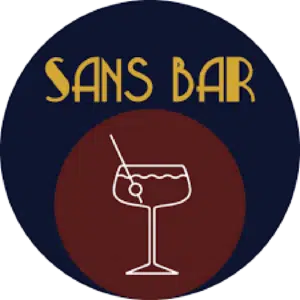
Sans Bar
The first non-alcoholic bar in North America.
Located at 918 Congress, Austin, Texas, our upscale bar is the cornerstone of our mission to create connection in the AF community.
Since 2017, we’ve been serving the central Texas community with premium alcohol-free cocktails, proving that socializing can be vibrant and enjoyable without alcohol.
Visit Sans Bar at 918 Congress Ave Austin, TX 78701
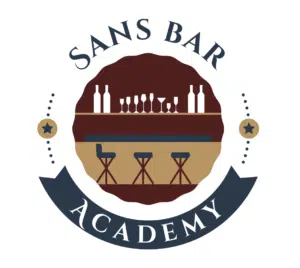
Sans Bar Academy
Your Path to Starting Your Own Booze-Free Brand
Are you ready to embark on a transformative journey towards building your own alcohol-free pop-up bar or brand? Look no further than Sans Bar Academy—an immersive 10-week virtual program designed to equip you with the knowledge, skills, and connections needed to turn your vision into reality.
Led by industry expert Chris Marshall, Sans Bar Academy has helped over 45 students go from a concept on paper to a profitable business model. With his wealth of experience and insider insights, Chris is dedicated to empowering aspiring entrepreneurs like you to succeed in the alcohol-free space.
